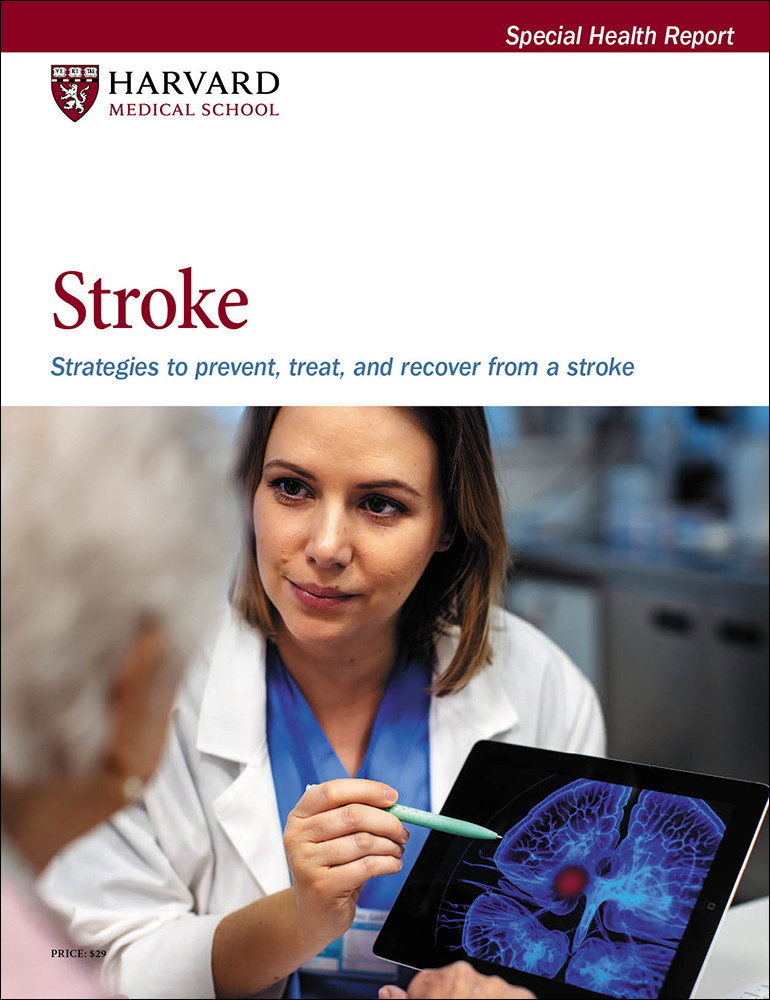Staying healthy after a heart procedure
If you've received an artery-opening stent or had bypass surgery, what medications should you be taking, and for how long?
- Reviewed by Christopher P. Cannon, MD, Editor in Chief, Harvard Heart Letter; Editorial Advisory Board Member, Harvard Health Publishing

You’ve had a procedure to improve blood flow to your heart — either an angioplasty plus a stent or coronary artery bypass surgery. Are you doing everything you can to avoid a heart attack or another procedure? Beyond the advice to follow a mostly plant-based diet, exercise regularly, sleep well, and manage stress, medications are absolutely crucial.
“For a variety of reasons, people with heart disease don’t always stick to their recommended medication regimen, which can lead to recurrent heart problems,” says Harvard Medical School professor Dr. Farouc Jaffer, director of coronary intervention at Massachusetts General Hospital. Here’s a rundown of the most commonly prescribed drugs, including why you need them, how they work, and if and when you can stop taking them.
Curbing clots: Dual antiplatelet therapy
After people receive a stent, have bypass surgery, or experience a heart attack, doctors routinely prescribe a combination of drugs to prevent blood components called platelets from clumping together and creating clots. Known as dual antiplatelet therapy (DAPT), it consists of low-dose aspirin plus another clot-preventing drug: clopidogrel (Plavix), prasugrel (Effient), or ticagrelor (Brilinta).
In the past, people stayed on DAPT for two years or even longer after receiving a stent, says Dr. Jaffer. But as both the stents and the procedure to implant them improved over the years, so did the risk of clots and related complications. “The most recent guidelines have reduced DAPT to six to 12 months after stenting, although the duration may be either shortened or extended depending on your particular situation,” says Dr. Jaffer. Because DAPT can increase bleeding, people who notice frequent bruising, bleeding gums, or nosebleeds should alert their doctor, who may advise them to stop one of the medications. That type of minor bleeding could be a harbinger of future severe bleeding in the gastrointestinal tract or brain or elsewhere, which can be very serious.
On the other hand, people with an elevated risk of clotting may benefit from staying on DAPT for a year or longer. Of note: Acid-suppressing medications known as proton-pump inhibitors — which include nonprescription omeprazole (Prilosec) or prescription-only pantoprazole (Protonix) — may lower the risk of bleeding in the digestive tract. They’re often recommended for people on DAPT who are over 65, have a history of upper gastrointestinal bleeding, or are taking other drugs that increase bleeding risk, such as those used to treat atrial fibrillation and arthritis.
Preventing plaque: LDL lowering drugs
Excess LDL cholesterol causes plaque buildup inside the heart’s arteries — a major cause of heart attacks and strokes. Although LDL-lowering medications such as statins are highly effective for lowering cardiovascular risk, some people are reluctant to take them, says Dr. Jaffer. Rather than dismissing their concerns (some of which stem from misinformation on social media), he acknowledges that no evidence is flawless and that side effects are possible. “But I’ll explain that we can work together to find a way to lower their LDL, either by adjusting the dose or switching to a different drug,” he says. (For information about other options, see “The changing landscape of LDL-lowering drugs” in the April 2022 Heart Letter.) For people with known heart disease, the guidelines recommend reducing LDL by half, with a target level of less than 70 milligrams per deciliter (mg/dL). But the lower your LDL (even below 40 mg/dL), the lower the risk of heart-related problems, says Dr. Jaffer. People with high triglycerides (150 mg/dL or higher) may benefit from icosapent ethyl (Vascepa). This drug lowers triglycerides and, in combination with statins, reduces the risk of heart attack and related problems by 25%.
Managing other risk factors
Medications to treat other conditions that contribute to heart disease (especially high blood pressure and diabetes) are also very important. Make sure you know your targets, which may vary depending on your age and any other health conditions you have. A standard blood pressure goal is 130/80 mm Hg or lower, and a typical blood sugar goal is an A1c value of less than 7%.
Living longer isn’t the only advantage to sticking to your medication regimen. When you’re in your 60s, surviving to age 85 instead of 82 might not feel important, says Dr. Jaffer. “But if medications can help you avoid a heart attack, or more invasive cardiac procedures, or heart failure over the next two decades? That’s a huge improvement in your quality of life and another major goal of cardiac medications,” he says.
Image: © DNY59/Getty Images
About the Author

Julie Corliss, Executive Editor, Harvard Heart Letter
About the Reviewer

Christopher P. Cannon, MD, Editor in Chief, Harvard Heart Letter; Editorial Advisory Board Member, Harvard Health Publishing
Disclaimer:
As a service to our readers, Harvard Health Publishing provides access to our library of archived content. Please note the date of last review or update on all articles.
No content on this site, regardless of date, should ever be used as a substitute for direct medical advice from your doctor or other qualified clinician.
















